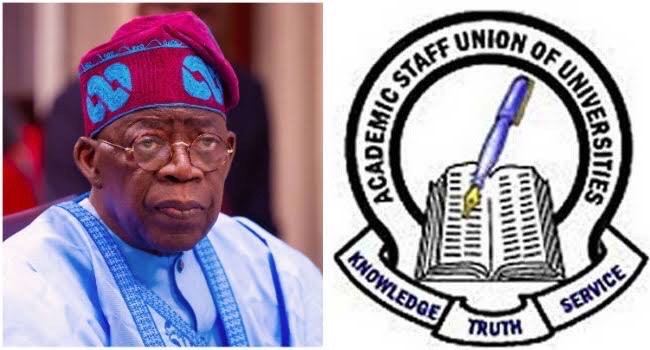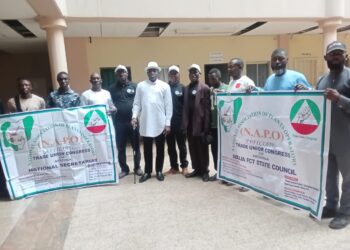By: Nwakaji Peace Martins
The Academic Staff Union of Universities (ASUU) issued a warning yesterday, stating that if the Federal Government (FG) fails to pay its members three and a half months of withheld salaries and academic allowances, they will resort to the “no pay, no work” policy. The union expressed concern over politicians prioritizing personal interests over national development, which could detrimentally impact public universities.
Addressing the media, ASUU’s Zonal Coordinator for Lagos Zone, Adelaja Odukoya, asserted that the union is prepared to take all necessary steps to ensure payment, including but not limited to implementing the “no pay, no work” rule. Odukoya emphasized that ASUU is entitled to strike action as a legitimate means to address their demands, especially when salaries and academic allowances are unjustly withheld.

He highlighted ASUU’s stance on the ongoing issues, such as the unresolved 2009 agreement, earned allowances, and the Integrated Payroll and Personnel Information System (IPPIS). Odukoya expressed disappointment in the government’s lack of cooperation with ASUU, similar to their treatment of the Nigeria Labour Congress. He stressed the importance of resolving these issues to prevent further disruptions in the university system.

Odukoya also raised concerns about the state of Nigeria, warning against the negative impact of corrupt leadership on the nation. He assured that ASUU would continue to defend public universities and the Nigerian people against destructive forces aiming to exploit the country for personal gain.
In terms of funding, ASUU proposed adopting the United Nations Fund for Population Activities (UNFPA) recommendation of allocating 15-20% of the budget to education. Odukoya criticized the government’s historical underfunding of education, with budget allocations consistently falling below 10% in the past decade.
Furthermore, the Federal Government announced the utilization of the Government Integrated Financial Management Information System (GIFMIS) for ASUU’s payment system. This decision deviates from ASUU’s suggestion of using the University Transparency and Accountability Solution, developed by the union. ASUU had previously rejected the IPPIS platform, alleging fraudulent practices and inadequate compensation.
The circular issued by the Federal Ministry of Education instructed institutions to conduct biometric verification of staff and transition to the GIFMIS platform for financial management. Despite President Bola Tinubu’s approval to exempt lecturers from IPPIS, ASUU members claimed that the directive has not been implemented effectively in federal universities and other tertiary institutions.



































